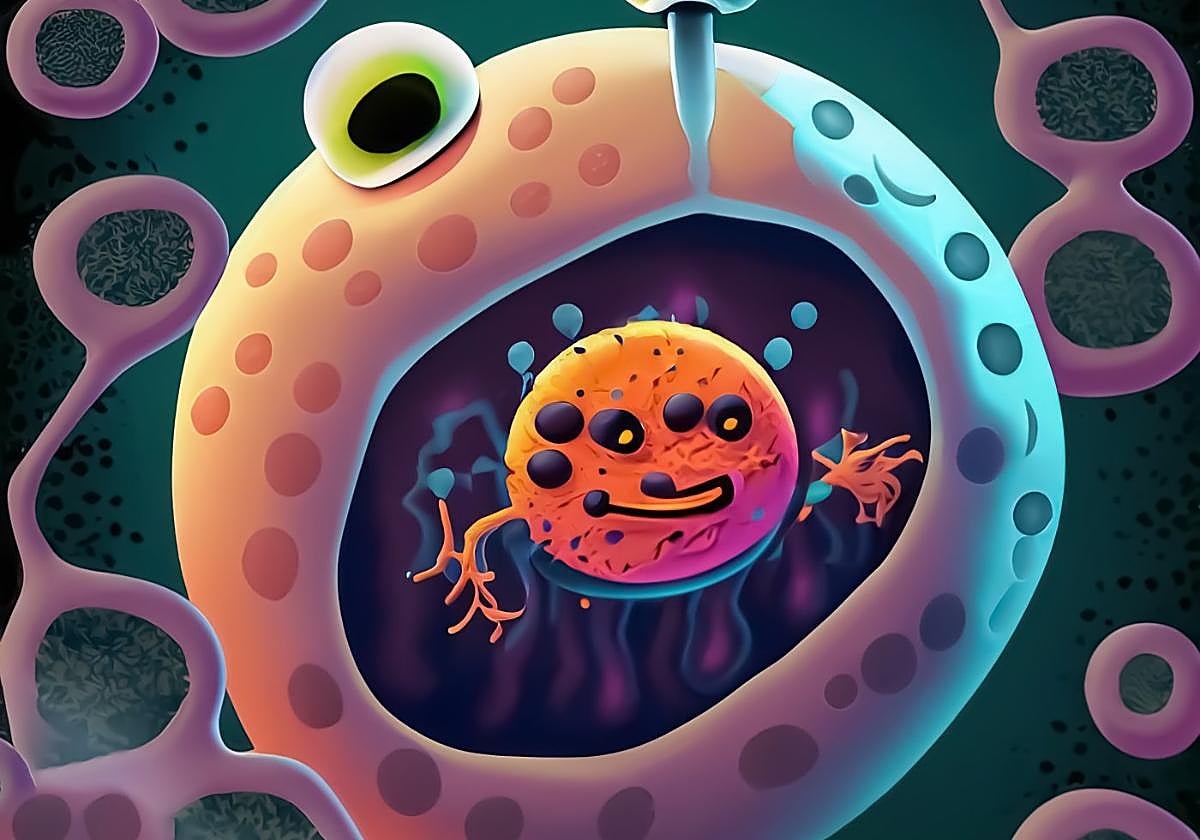What is autophagy and why it can help you age better?
This self-cleansing system of our body's cells is key to living a longer, healthier life
Jon Garay
Madrid
Friday, 13 September 2024, 15:44
Let's face it, autophagy is an ugly-sounding word. It sounds like gobbling, scoffing, troughing. And it pretty much means just that. "It literally means eating yourself up," explains Aintzane Apraiz, professor and researcher at the University of the Basque Country (UPV). Still, as bad as it may sound, autophagy is a key process for the human body, starting with the ageing process, which concerns us so much nowadays. It is also related to muscle loss and neurodegenerative diseases such as Alzheimer's and Parkinson's and, sadly, cancer too. The Royal Academy defines it as "the mechanism used by eukaryotic cells [humans being one such group] to degrade their own components with a view to their renewal and replacement". Explained in words we can all understand, "it's as if the cells went through a major overhaul at the garage and fixed everything that does not work well," explains Antonio Zorzano, head of the Complex Metabolic Diseases laboratory at the Institute for Research in Biomedicine (IRB) in Barcelona.
Zorzano explains that it is a very complex process "that we are still trying to understand", but it is one that basically involves two functions.
Cleaning and energy
Moderate physical exercise, a low-calorie diet and adequate sleep all help the body to function well
As mentioned before, the first is to recognise everything that does not work well in the cell and repair it. "Each cell is like a mini planet that has to manage many activities. It has different organelles, or parts, with a particular function. The nucleus would be the command centre; the mitochondria like a nuclear power plant that provides the energy and the linked-up grids are like the factories that make the pieces..." explains Prof Apraiz.
Zorzano goes on to explain that, over time, "this system deteriorates and proteins or molecules are produced that are damaged or have been damaged, as happens with the skin when it is exposed to the sun for too long. Then you have to remove that thing that's getting in the way and doesn't work". This waste ends up in another part of that mini-planet called lysosomes, "the recycling plants". The other function known about autophagy comes into play in times of lack of nutrients, when it sets in motion to provide some kind of 'food' to these cells "when it's not coming from outside".
Exercise, eat less and sleep well
Studies on autophagy began way back in the 1950s. First to have a breakthrough in this field of research was Belgian biochemist Christian René de Duve, who received the Nobel Prize in 1974 for discovering the aforementioned lysosomes. At first it was believed that this cellular make-over was a response to stress by the organism. "Cellular stress has nothing to do with what we're studying. The renewal could be happening due to a lack of nutrients, oxygen..," Apraiz clarifies. Successive investigations have demonstrated that it is a mechanism that is permanently active to keep the billions of cells that make up our bodies as healthy as possible.
However, the most important discovery did not come until the '90s. It was not research carried out on human cells, nor even work on lab mice. Japanese scientist Yoshinori Ohsumi discovered this same mechanism in something much simpler, the yeast used by bakers. "He observed that in some cells the mitochondria or other organelles appeared inside a kind of bag and that this moved towards the lysosome. They were eating themselves," states the professor. The Japanese researcher thus demonstrated that autophagy was also present in single-cell organisms, which suggested that it could be a fundamental physiological process in more complex organisms, including humans. He received the Nobel Prize in Medicine in 2016.
So what happens when this self-cleaning does not work well? Firstly, it affects the muscles, which lose quantity and quality. It's what doctors call sarcopenia, which translates into a greater risk of falls and injuries as we get older. Health goes downhill in reverse-pyramid fashion. If a cell fails to stay healthy and progressively more and more cells are added to it, it will end up affecting the organ of which they are all a part and, ultimately, the entire organism. It also occurs with diseases such as Alzheimer's and Parkinson's, in which an accumulation of poorly formed proteins occurs that are not detected and eliminated during its passage through the repair workshop. It is also related to some types of cancer.
Can we do anything to avoid it? Yes. Aside from medication, the medical experts recommend moderate physical exercise and a low-calorie diet. Add to that some quality sleep, because the cells go through the repair centre for an overhaul when we are at rest.
